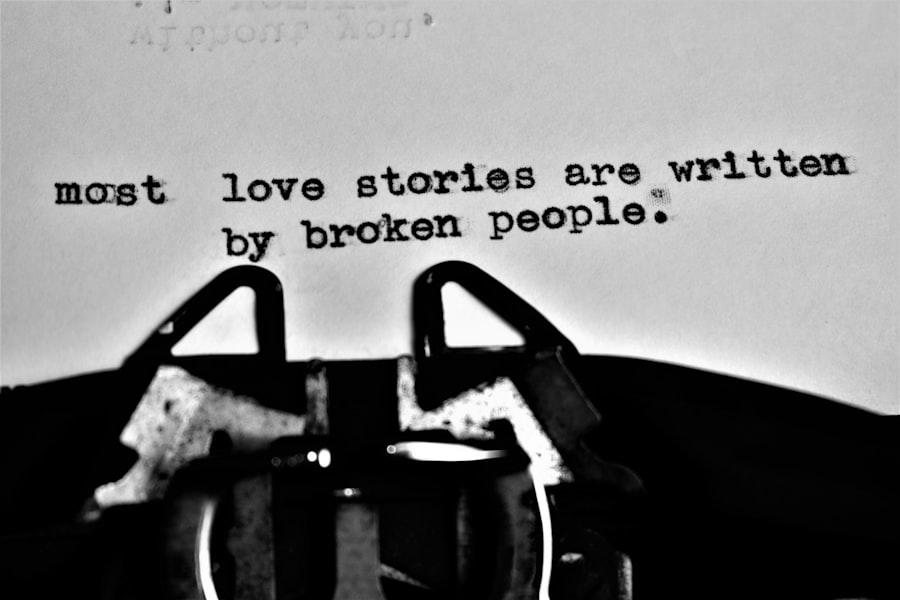In the fast-paced and often demanding environment of the workplace, self-help books have emerged as invaluable resources for personal and professional development. I have found that these books offer insights and strategies that can transform not only my approach to work but also my overall mindset. They serve as guides, helping me navigate the complexities of my career while fostering a sense of empowerment and growth.
The beauty of self-help literature lies in its accessibility; anyone can pick up a book and glean wisdom from the experiences and research of others. As I delve into the world of self-help books, I realize that they cover a wide array of topics, from leadership and communication to time management and overcoming adversity. Each book presents unique perspectives and actionable advice that resonate with my personal experiences.
By integrating the lessons learned from these texts into my daily routine, I have been able to cultivate a more positive work environment, enhance my skills, and ultimately achieve greater success in my career.
Key Takeaways
- Self-help books offer valuable insights and strategies for personal and professional development in the workplace.
- The power of positive thinking can significantly impact workplace performance and overall success.
- Self-help books can help individuals develop essential leadership skills such as decision-making, problem-solving, and emotional intelligence.
- Effective communication is crucial for career success, and self-help books provide practical strategies for improving communication in the workplace.
- Time management and productivity tips from self-help books can help individuals achieve better work-life balance and increased efficiency in their careers.
The Power of Positive Thinking in the Workplace
One of the most profound lessons I have encountered in self-help literature is the power of positive thinking. Books like “The Power of Positive Thinking” by Norman Vincent Peale have taught me that maintaining an optimistic outlook can significantly influence my work life. This mindset not only helps me tackle challenges with resilience but also fosters a more collaborative atmosphere among my colleagues.
When I approach tasks with positivity, I find that I am more open to creative solutions and better equipped to inspire those around me. However, while the benefits of positive thinking are clear, I have also come to understand its limitations. Blind optimism can lead to unrealistic expectations and disappointment when faced with setbacks.
It is essential to balance positivity with a realistic assessment of situations. This nuanced understanding has allowed me to harness the power of positive thinking while remaining grounded in reality, enabling me to navigate workplace challenges more effectively.
Developing Leadership Skills through Self-Help Books

Leadership is a critical component of success in any workplace, and self-help books have played a pivotal role in shaping my leadership abilities. Titles such as “Leaders Eat Last” by Simon Sinek emphasize the importance of empathy and trust in leadership. Through these readings, I have learned that effective leaders prioritize the well-being of their teams, fostering an environment where everyone feels valued and motivated to contribute.
This approach has not only improved my relationships with colleagues but has also enhanced overall team performance. On the flip side, I have encountered books that present overly simplistic views of leadership, suggesting that charisma alone can drive success. While charisma is undoubtedly an asset, I have realized that true leadership requires a multifaceted skill set, including emotional intelligence, strategic thinking, and adaptability.
By critically evaluating the lessons from various self-help books, I have been able to develop a more comprehensive understanding of what it means to be an effective leader in today’s dynamic workplace.
Effective Communication Strategies for Career Success
| Communication Strategy | Description |
|---|---|
| Active Listening | Being fully present and engaged when others are speaking, and demonstrating understanding through verbal and non-verbal cues. |
| Clarity and Conciseness | Expressing ideas and information clearly and succinctly to ensure understanding and avoid confusion. |
| Empathy | Understanding and acknowledging the emotions and perspectives of others, and responding with sensitivity and compassion. |
| Assertiveness | Expressing thoughts, needs, and opinions confidently and respectfully, while also being open to the input of others. |
| Adaptability | Adjusting communication style and approach to effectively connect with different individuals and situations. |
Effective communication is paramount in any professional setting, and self-help literature has provided me with valuable strategies to enhance this skill. Books like “Crucial Conversations” by Kerry Patterson et al. have taught me how to navigate difficult discussions with confidence and clarity.
By learning techniques for active listening and assertive expression, I have been able to foster more productive conversations with colleagues and superiors alike. This has not only improved my relationships but has also contributed to a more harmonious work environment. Nevertheless, I have also encountered challenges when applying these communication strategies in real-life situations.
While theory is essential, practice is where true mastery lies. There are times when emotions run high or when misunderstandings arise, making it difficult to implement the techniques I’ve learned. Recognizing this gap has encouraged me to seek continuous improvement in my communication skills, reminding me that mastery is a journey rather than a destination.
Time Management and Productivity Tips from Self-Help Books
Time management is another area where self-help books have had a significant impact on my professional life. Titles like “Getting Things Done” by David Allen have introduced me to practical frameworks for organizing tasks and prioritizing responsibilities. By implementing these strategies, I have been able to increase my productivity and reduce feelings of overwhelm.
The clarity that comes from having a structured approach to time management has allowed me to focus on what truly matters in my work. However, I have also faced challenges in adhering to these time management principles consistently. Life is unpredictable, and unexpected tasks or distractions can derail even the best-laid plans.
This realization has prompted me to adopt a more flexible mindset regarding time management. Instead of striving for perfection, I now aim for progress, allowing myself the grace to adapt when circumstances change while still keeping my productivity goals in sight.
Overcoming Workplace Challenges and Adversity

Workplaces are often rife with challenges, from interpersonal conflicts to project setbacks. Self-help books have equipped me with tools to confront these adversities head-on. For instance, “The Obstacle Is the Way” by Ryan Holiday emphasizes the importance of resilience and viewing challenges as opportunities for growth.
This perspective shift has empowered me to approach difficulties with a proactive mindset rather than succumbing to frustration or defeat.
There are moments when external factors are beyond my control, leading to feelings of helplessness.
In such instances, I remind myself that resilience is not just about bouncing back; it’s about adapting and finding new paths forward. This understanding has helped me cultivate a more nuanced approach to adversity, recognizing that growth often comes from navigating uncertainty rather than avoiding it.
Building Confidence and Assertiveness in the Workplace
Confidence and assertiveness are crucial traits for success in any career, and self-help literature has been instrumental in helping me develop these qualities. Books like “The Confidence Code” by Katty Kay and Claire Shipman explore the science behind confidence and provide practical strategies for building it in professional settings. By applying their insights, I have learned to embrace my strengths and articulate my ideas more assertively during meetings and discussions.
However, I have also encountered moments of self-doubt despite these efforts.
Recognizing this has allowed me to be kinder to myself during challenging times while continuing to push myself out of my comfort zone.
Building confidence is an ongoing process that requires patience and persistence, but the rewards are well worth the effort.
Applying Self-Help Strategies for Career Growth
In conclusion, self-help books have profoundly influenced my professional journey by providing valuable insights into various aspects of workplace dynamics. From fostering positive thinking and developing leadership skills to enhancing communication strategies and building confidence, these resources have equipped me with tools for success. However, I have also learned that applying these strategies requires continuous effort and adaptation.
As I move forward in my career, I remain committed to integrating the lessons learned from self-help literature into my daily life. By embracing both the successes and challenges that come with this journey, I am confident that I will continue to grow both personally and professionally. Ultimately, self-help books serve as reminders that we all possess the potential for growth; it is up to us to harness that potential through dedication and perseverance in our careers.
If you’re looking to enhance your productivity and well-being at work, consider exploring the insights offered in the article “Creating an Atmosphere of Peace” on 2xmybiz.com. This piece delves into practical strategies for fostering a tranquil and productive workplace environment, which can be incredibly beneficial alongside the lessons from self-help books. You can read more about these effective techniques by visiting Creating an Atmosphere of Peace. This resource is ideal for anyone looking to improve their workplace atmosphere and personal efficiency.
FAQs
What are self-help books for the workplace?
Self-help books for the workplace are books that provide guidance, advice, and strategies for personal and professional development in the context of the workplace. These books aim to help individuals improve their skills, productivity, communication, and overall performance in their work environment.
What are the benefits of reading self-help books for the workplace?
Reading self-help books for the workplace can provide valuable insights, practical tips, and actionable strategies for improving various aspects of one’s professional life. These books can help individuals enhance their leadership abilities, communication skills, time management, and overall effectiveness in the workplace.
How can self-help books for the workplace impact career growth?
Self-help books for the workplace can have a positive impact on career growth by offering guidance on setting and achieving career goals, developing leadership skills, building effective work relationships, and navigating challenges in the workplace. These books can empower individuals to take control of their professional development and progress in their careers.
What are some popular self-help books for the workplace?
Some popular self-help books for the workplace include “The 7 Habits of Highly Effective People” by Stephen R. Covey, “Lean In: Women, Work, and the Will to Lead” by Sheryl Sandberg, “Emotional Intelligence 2.0” by Travis Bradberry and Jean Greaves, “Drive: The Surprising Truth About What Motivates Us” by Daniel H. Pink, and “Mindset: The New Psychology of Success” by Carol S. Dweck.
How can self-help books for the workplace improve productivity?
Self-help books for the workplace can improve productivity by offering strategies for time management, prioritization, goal setting, and overcoming procrastination. These books can also provide insights into building effective work habits, managing stress, and maintaining a positive mindset, all of which contribute to increased productivity in the workplace.



